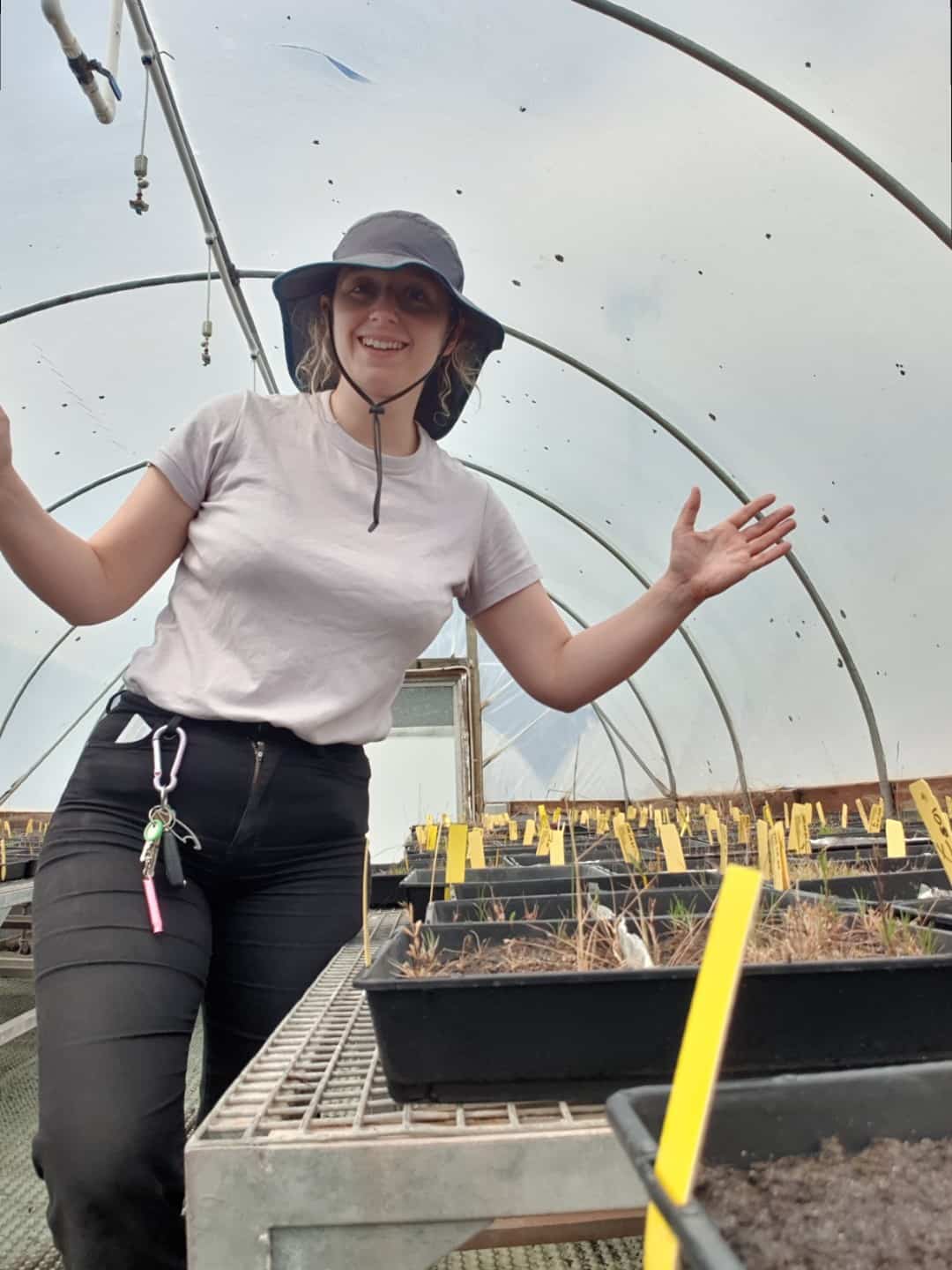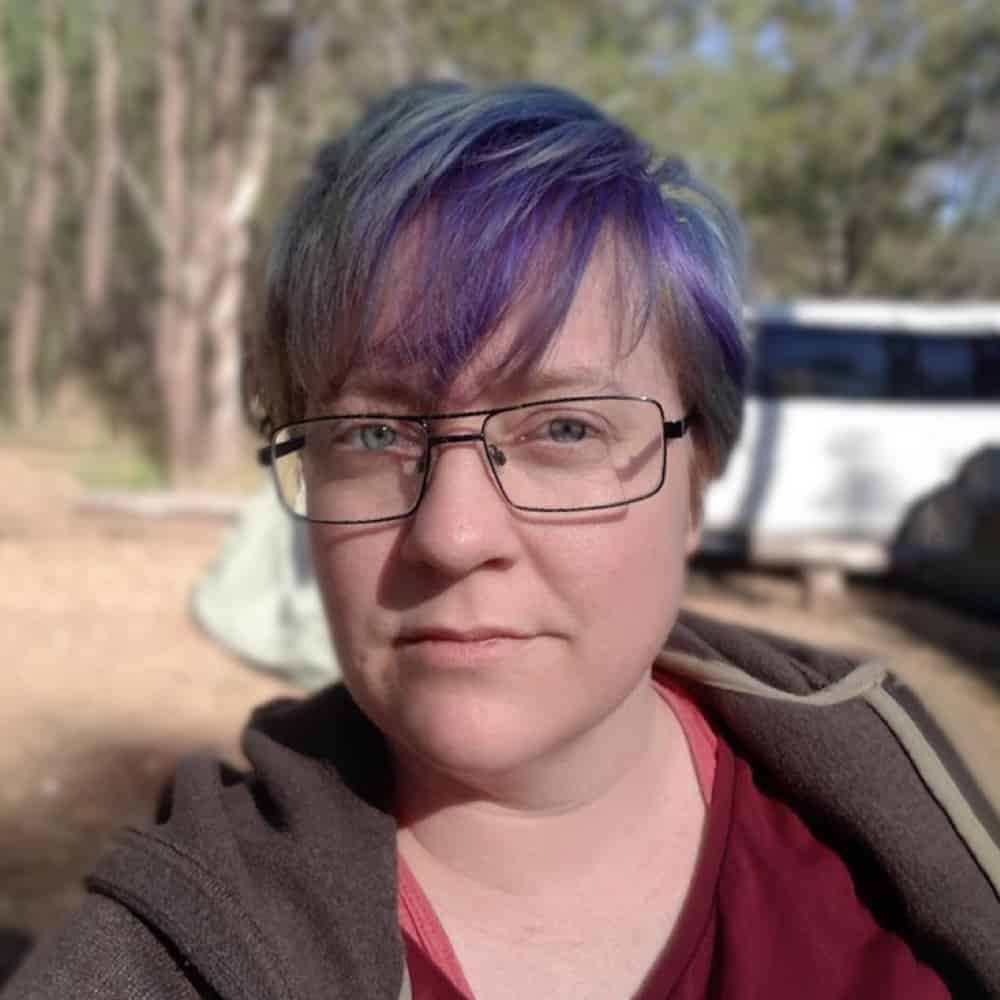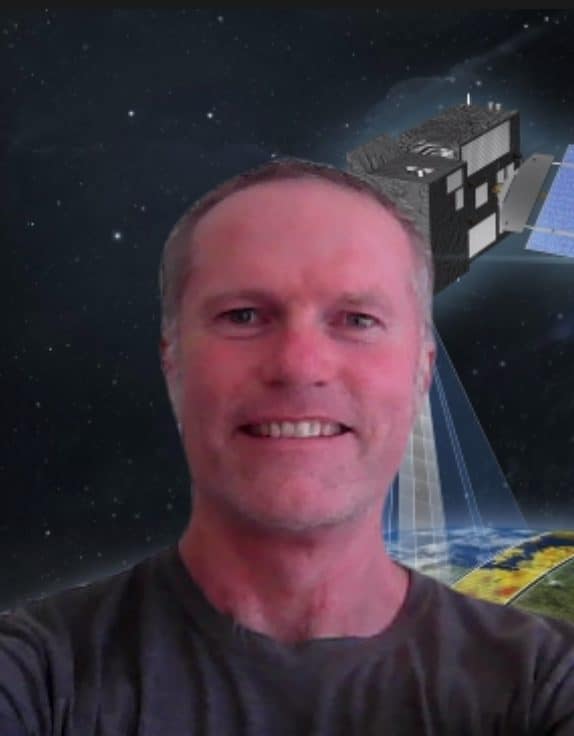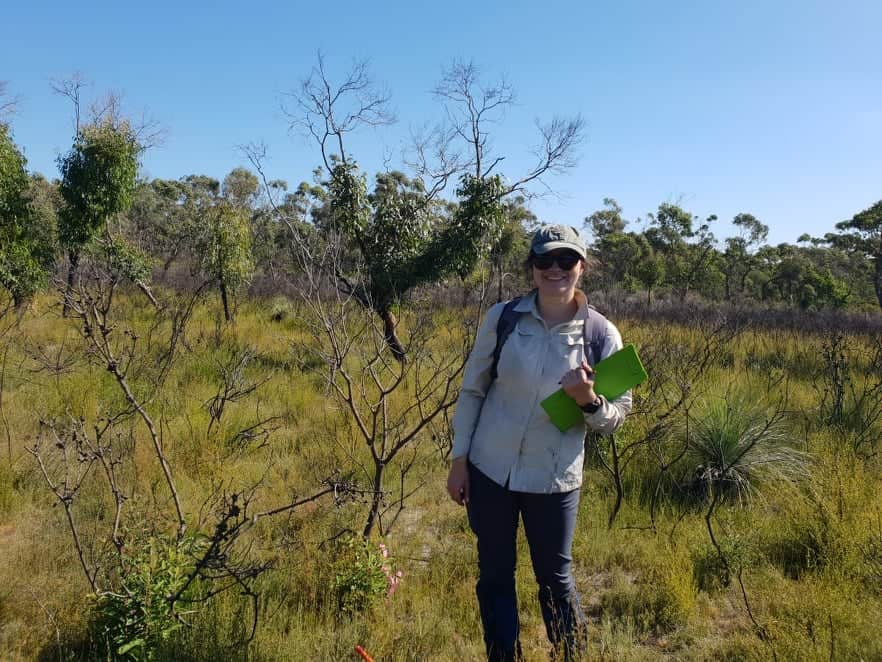I started my PhD in March 2019 and was based at the Creswick Campus. My PhD involved both field and laboratory work. I examined the drivers of litter bed flammability, in particular the role of leaf traits and litter bed composition. An important part of my PhD was the development of a novel method to study the flammability of eucalypt litter beds in the laboratory. During my PhD I was also fortunate enough to work on other, related projects within FLARE.
Thesis – Leaves to landscapes: what drives litter bed flammability?
Fire is an important disturbance globally, shaping the structure and composition of many forested ecosystems. While fire is a natural process, large, extreme fire events can have devastating consequences on people and the environment. Predicting when and where fires occur is key to being able to manage these impacts. Most forest fires start as small fires, igniting and initially spreading in the litter bed – the layer of dead leaves, twigs and bark on the forest floor. Despite the importance of litter beds to wildfire occurrence and intensity, our understanding of the drivers of litter bed flammability remains incomplete. Thus, the over-arching aim of this thesis was to examine the drivers of litter bed properties and flammability, in order to better understand the mechanisms underpinning litter bed flammability.
Starting at the leaf-scale, I reviewed the literature on leaf traits, litter structure and flammability to summarise current knowledge and identify knowledge gaps (Chapter 2). I performed a meta-analysis using existing data collated from key laboratory flammability studies in different fire-prone biomes. Leaf traits predominately influenced flammability indirectly, via litter structure. The packing ratio and bulk density of the litter bed were influenced by different combinations of leaf traits and, in turn, they aligned with different flammability metrics. Importantly, the effects of the leaf and litter traits were consistent across a wide range of taxa and biomes. However, uncertainty remained regarding whether the relationships identified in simple litter beds continue to be important at field-scales in litter beds which are more complex in relation to their structure, composition, and moisture content. Hence, I developed and tested the effectiveness of a laboratory method to measure ignitability of litter beds collected from the field (Chapter 3). I examined how the results of this laboratory method matched a similar but more logistically complex field method, to better understand the scalability of laboratory experiments. I found that laboratory experiments can be adequate surrogates for field experiments, particularly under low wind conditions and where there is little near-surface fuel and litter beds are the dominant receiving fuel for firebrands.
I used this laboratory method to examine how flammability varies as a function of moisture, in combination with other factors, at two spatial scales: the litter bed and the vegetation community, sampling forested sites along an aridity gradient (Chapter 4). At the litter bed-scale, moisture content was a key predictor of ignition and flame spread rate. Moisture thresholds varied with leaf cover for ignition and leaf size for flame spread rate. Conversely, bulk density was a key predictor of flame duration, not moisture. At the community-scale, Vapour Pressure Deficit (VPD) was the best predictor of site-level ignitability. Aridity shaped the relationship between VPD and ignitability, reflecting differences in canopy cover and its influence on forest microclimate and fuel moisture dynamics. Less arid parts of the landscape had a higher VPD-threshold for ignition than more arid parts, meaning they are available to burn less often.
Finally, I considered how management actions influence litter beds and understorey fuel (Chapter 5). Using data from a long-term ecological burning experiment, I examined how frequent prescribed burning and timber harvesting influenced the amount and composition of fine fuel, and the implications for flammability. Frequent fire had consistent effects irrespective of harvesting, increasing the amount of leaves in the litter bed and decreasing the amount of live understorey fuel.
Overall, this research provides insight into the mechanisms underpinning litter bed flammability, from leaves to vegetation communities. This information can be used to improve fire prediction and fuel management.
Q: What “day to day” type activities that you do?
My PhD is a mixture of field and lab work, as well as data analysis and modelling. As I study litter bed ignitability, most of my field and lab work is concentrated in summer to capture how ignitability and moisture conditions change over the fire season. A typical field day consists of going to different forest sites and collecting litter (leaves, twigs and bark on the forest floor), then taking these back to the lab to watch them burn! In the lab, I record whether or not the litter ignited, and if it did, how quickly it spread, how long it burnt, and how tall the flames were.
Q: What pathway did you take to get into the research?
My pathway was pretty normal, I did both my undergraduate and postgraduate studies at the University of Melbourne. It was during my postgraduate studies that I become interested in fire behaviour through subjects run by our group. I also really enjoyed studying at the Creswick Campus. During my postgraduate studies I had a part-time job at a private plantation company as a resource forester, helping to schedule forest inventories of the plantation estate and process the data. In-between the end of my post-graduate and starting my PhD I did a little bit of work as a research assistant which really helped with my skills in project planning and data analysis, including using R.
Q: What’s something you’re proud of from your PhD?
I’m proud of the field and lab work I’ve done. In total I’ve collected 690 litter samples from forests around Daylesford and Powelltown. If someone had said to me before I started that I’d collect that many samples I probably wouldn’t have believed it! The data from these samples is going to be really valuable for determining ignition thresholds for fire occurrence.
Q: What’s the most interesting thing that you have done during your PhD?
The most interesting thing I’ve done was to be part of a project measuring ignition in the field. Being able to observe ignition in the field and see how different fuel and plant species ignited was really cool!
Q: Do you have any advice for future PhD students?
I think some good advice would be don’t be disheartened if things don’t go to plan or have to change. It is very likely that you may not achieve everything you set out to do in your initial thesis plan at confirmation. I think being able to adapt, modify a chapter or design a completely new chapter is a really valuable skill to learn.



